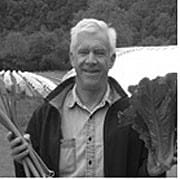Comments Due to USDA by April 19 on Checkoff Proposal
 |
The USDA wants public feedback on a proposed checkoff program for organics. The scheme, advocated by the industry’s largest lobby group, the Organic Trade Association (OTA), would establish a mandatory tax on farmers, food processors, distributors, retailers, and importers engaged in organic commerce. Cornucopia is calling on all good food advocates to stand together to reject this proposal.
You can help organic farmers by telling the USDA to reject this unfair checkoff proposal.
Make your voice heard today! The public comment period closes on April 19.
Many farmers are familiar with checkoff programs from commodities they have produced in the past, and consumers are familiar with the promotions these programs created, like Beef, It’s What’s for Dinner, Got Milk?, and the Incredible Edible Egg.
Almost uniformly, farmers view checkoffs as an unfair tax on their income from which they receive little benefit. Most programs are ineffective, and the ones with modest impacts benefit food processors and marketers, not farmers.
The USDA estimates that $25 million a year would be raised by the checkoff for research and promotion of organic commodities (minus millions in administration costs).
Cornucopia is a member group of the No Organic Checkoff coalition, a broad alliance of farmer and consumer organizations and businesses that oppose the organic checkoff for a number of reasons, including:
- OTA argues that we need money for promotion of organics. But the roughly $5 million set aside for marketing by the proposal would have tight restrictions. The USDA Secretary has to approve all promotional marketing messages, and any promotional message cannot be viewed as disparaging other commodities. Checkoff dollars could almost certainly not be used to advocate for claims of organic food health, superior food quality, safety, sustainability or be used to expose differences between “natural” and GMO-free food claims because these types of messages can be viewed as disparaging conventional food commodities.
- Checkoff dollars could not be used to promote domestic organic production, grown and raised by American farmers, as that would be viewed as disparaging imported organic commodities — so the checkoff means that S. farmers will pony up for promoting imports.
- The proposal is undemocratic. For this proposal to move forward, the USDA must approve a vote by organic certificate holders to establish an organic checkoff. Yet all organic certificate holders will not be given a vote unless they request a ballot. But if you request a ballot, you must agree to pay the checkoff tax if the proposal passes. All certificate holders should get a ballot without having to pay to play.
- Every December, every organic farmer will have to submit paperwork declaring their gross income to the USDA. This will then be used to identify those subject to a tax on their net income. Do farmers need this invasion of privacy and more paperwork to fill out? Who will verify the accuracy of the records?
- The governing board for the administration of the checkoff program would be selected by the USDA. Farmers, who currently hold nearly two-thirds of all organic certificates, would have less than half of the seats on the checkoff board. Individuals with political and corporate connections would likely be appointed by the USDA Secretary, as is the case with the National Organic Standards Board. An organic importer would even have a seat on the checkoff governing board.
- If you are an organic farmer and this proposal passes, your exemption from conventional checkoffs is eliminated. This means that if you do not pay into the organic checkoff, and the commodity you produce has a conventional checkoff, you would be forced to support that conventional program. Furthermore, anyone paying into the organic checkoff must file more paperwork annually with the USDA to avoid having to also pay into any conventional checkoff that covers commodities they produce.
- Other checkoff programs have been plagued with corruption and scandals. Even though this proposal must be reaffirmed by a vote of organic certificate holders after seven years, the USDA Secretary has ignored at least one such vote on another checkoff. And if it were abandoned, organic farmers would then have to pay into any conventional checkoffs covering what they produce, which they do not have to do now.
Whether you are an organic or local farmer, or a consumer wanting to support authentic family-scale, certified organic farms, please act today: tell the USDA to reject this checkoff proposal.
Submit your comments to the USDA rejecting this checkoff scheme by midnight Eastern Time on Wednesday, April 19.
What Farmers Are Saying:
 |
“We don’t trust OTA and USDA to speak for us in describing organic food to the public. We don’t want OTA and USDA to form another board, which is weighted in favor of corporate organics and which would control our message to the public.”
– Jim Crawford, New Morning Farm, Pennsylvania |
 |
“Commodity checkoffs were never intended to increase the profitability of the farmer, although we were led to believe that. Checkoffs paid by the farmer are just an easy source of funding for the industry to spend as they wish.”
– Jim Goodman, Dairy Farmer, Northwood Organic Farm, Wisconsin |

